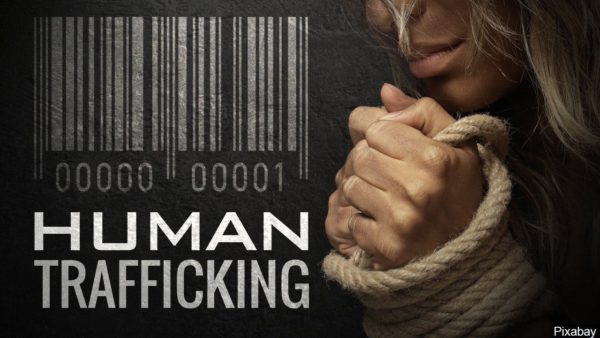

-
MISSING IN KANSAS: Risks, warning signs of human trafficking
MISSING IN KANSAS: Risks, warning signs of human trafficking
People of all backgrounds are vulnerable to becoming victims of human trafficking, but some folks may be more at risk than others.
People of all backgrounds are vulnerable to becoming victims of human trafficking, but some folks may be more at risk than others.
-
MISSING IN KANSAS: Alex Head missing for 1 year
MISSING IN KANSAS: Alex Head missing for 1 year
Family and friends are concerned about missing man Alex Head.
Family and friends are concerned about missing man Alex Head.
-
MISSING IN KANSAS: Madison Fitzgeralds
MISSING IN KANSAS: Madison Fitzgeralds
Family is concerned for a Kansas teen missing for months.
Family is concerned for a Kansas teen missing for months.
-
MISSING IN KANSAS: Justin Green
MISSING IN KANSAS: Justin Green
A family is hoping the community can help find a northeast Kansas man who hasn’t been heard from for months.
A family is hoping the community can help find a northeast Kansas man who hasn’t been heard from for months.
-
MISSING IN KANSAS: Jaden Pavone missing again
MISSING IN KANSAS: Jaden Pavone missing again
Teenager Jaden Pavone was last seen in December 2019 in Shawnee County.
Teenager Jaden Pavone was last seen in December 2019 in Shawnee County.
-
Police search for suspects in north Wichita gas station theft
Police search for suspects in north Wichita gas station theft
Wichita Police are looking for four suspects who broke into a gas station earlier this month.
Wichita Police are looking for four suspects who broke into a gas station earlier this month.
-
Reminders for drivers ahead of winter weather blast
Reminders for drivers ahead of winter weather blast
Wichita crews have been getting ready for ice, sleet, and freezing rain headed to Wichita. The winter weather conditions could make Friday morning’s commute challenging.
Wichita crews have been getting ready for ice, sleet, and freezing rain headed to Wichita. The winter weather conditions could make Friday morning’s commute challenging.
-
Man booked into jail after sister’s body found in Kansas
Man booked into jail after sister’s body found in Kansas
A Lawrence man has been charged with first-degree murder in the death of his 22-year-old sister, Johnson County prosecutors said Thursday.
A Lawrence man has been charged with first-degree murder in the death of his 22-year-old sister, Johnson County prosecutors said Thursday.
-
Wichita city crews prepare for winter weather
Wichita city crews prepare for winter weather
Wichita crews have been getting ready for winter weather headed to KAKE Land. Roads have been in good condition all day Thursday, but freezing rain is in the forecast for Thursday night and early Friday morning. That could lead to a slick commute Friday.
Wichita crews have been getting ready for winter weather headed to KAKE Land. Roads have been in good condition all day Thursday, but freezing rain is in the forecast for Thursday night and early Friday morning. That could lead to a slick commute Friday.
-
Freezing rain likely causing slick roads overnight
Freezing rain likely causing slick roads overnight
It’s becoming more clear that although some light snow and sleet will fall in Kansas this week, the primary threat is freezing rain.
It’s becoming more clear that although some light snow and sleet will fall in Kansas this week, the primary threat is freezing rain.